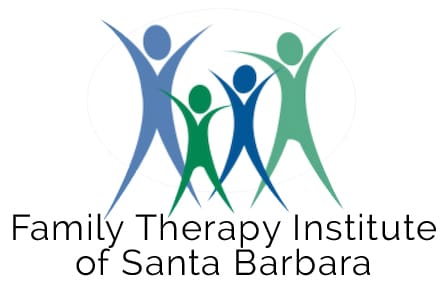The Family Therapy Institute of Santa Barbara
(CAMFT CE Provider #128307)
Presents:
Should I Care?
The Ethics & Clinical Consequences of Self Disclosure
Taught by Debra Manchester LCSW (LR9847)
Saturday November 5, 2022
9am-Noon | 3 CE Credits | $75
Over the past decade, the topic of therapist self-disclosure has received increased attention in theoretical debates and empirical research. When is a TSD ethically appropriate? What ethical principles should guide therapists in making decisions about when to disclose or not in different clinical scenarios and with different clients? Come join this lively conversation!
Email info@ftisb.org, call Nancy (805) 882-2424 x111, or make a payment to register!
Payment Options:
With Debit/Credit/e-Check
Enter Law & Ethics 2022 as the invoice number
Venmo:
User ID @FTISB
Enter Law & Ethics 2022 as the payment comment.
Coursework (Coming Soon):
Click on any of the following for the forms
- Syllabus
- Course Test
- Course Evaluation
This course meets the qualifications for 3 hours of continuing education credit for LMFT’s, LCSW’s, LPCCs, LEPs and RNs as required by the California Board of Behavioral Sciences.
The Family Therapy Institute of Santa Barbara is approved by the California Association of Marriage and Family Therapists to sponsor continuing education for LMFT’s, LCSW’s, LPCCs, and LEPs. Family Therapy Institute of Santa Barbara maintains responsibility for this program/course and its content
Debra Manchester, LCSW, is the Executive Director of Family Therapy Institute of Santa Barbara, now in its 41th year. In 2010, Debra was honored by SB CAMFT “for 30 years of inspiration, leadership, and training provided to thousands of clinicians, and the devotion exemplified in consistent visionary work for the community.” She and her husband, Don MacMannis, recently published their second book, entitled Who’s the Boss? The Win-Win Way to Parent Your Defiant Strong-Willed Child. Their first book, How’s Your Family ReallyDoing? 10 Keys to a Happy Loving Family, was published in 2011. Deb is a blogger for PsychCentral as well as for HowsYourFamily.com.
Course Content and Learning Objectives
Designed for supervisors, clinicians and students who want an annual update on recent trends and developments in legal and ethical issues from a clinical perspective, this course is intended for those who have already completed coursework on law and ethics in social work. It focuses on the complexities and dilemmas when dealing in the field with children, teens, couples and families.
This course covers issues of diversity via the teaching of core ethical values and principles as well as through case examples using couples and families from varied ethnic, racial, religious, and economic backgrounds.
Goals:
The goals of this course are the following:
- To discuss the ethics of therapist self-disclosure
- To be up to date on the research about both the potential risks and benefits of different kinds of self-disclosure.
- To learn how to use self-disclosure effectively and ethically when working with specific populations and types of presenting problems.
Learning Objectives:
Upon completion of this course:
Participants will be able to discuss
- To discuss the ethical principles that apply to therapist self-disclosure
- To discuss 4 reasons why self-disclosure contributes to therapy in a positive way
- To discuss recent research on how clients feel about their therapist’s self-disclosures
- To summarize 4 reasons why therapists should not self-disclose
- To discuss the use of self-disclosure with traumatized clients.
- To discuss the ethics and clinical implications of self-disclosure with multicultural clients, with LGBTQ clients and with clients with differing religious views
Course Schedule:
9:00am-9:15am: What is self-disclosure
9:15am-10:00am: The risks and benefits
10am-10:15am: The history of self-disclosure
10:15am-10:30am: Summary and questions so far
10:30-10:40: Break
10:40am-11:50am: Clinical use with diverse clients and presenting problems
12pm-12:10PM: Wrap-up/questions/discussion
Target Audience
The target audience is licensed clinical professionals including psychiatrists, psychology, LMFT’s, LCSW’s, LPCC’s, LEP’s, RN’s, and registered interns.
Course Completion Certificates
CEU certificates will be awarded after the workshop, after the submission of a completed course evaluation form and test (passing with at least 70% correct). Partial credit CEU certificates will not be awarded. If an attendee leaves before the end of the workshop or without submitting a completed a course evaluation form or test, they may ask for the video of the workshop, submit a completed test and course evaluation to receive CEUs.
Cancellation Policy:
The registration fee, less $15 process charge, will refunded if written notice of the cancellation is faxed, emailed or postmarked 1 week prior to the workshop. Thereafter there will be no refunds. Refunds will be reimbursed via check within 5 business days of written notice.
Requesting Accommodations for Disability:
Facilities are accessible to persons with disabilities. If you have a special need and plan to attend the workshop, please contact Nancy Villalobos, Administrator, or Debra Manchester, our Executive Director at (805) 882-2400 or via email at info@FTISB.org. Please allow as much advance notice as is possible to ensure we have ample opportunity to meet your needs.
Instruction for Addressing Grievances:
Participants can lodge complaints directly to the Program Coordinator or any of the FTI staff. FTI staff will be identified by name badges and the Program Coordinator or FTI staff designee introduces the speaker and explains the CEU process to the attendees. Complaints can also be written on the evaluation forms, sent via email (info@ftisb.org) to the Program Coordinator or administrative assistant. They will be followed up within ten business days. Grievances can include, but are not limited to the following:
- Refund requests
- Complaints about course cont occurrences ent
- Complaints about facilities
- Complaints about non-receipt of certificates
- Complaints about miscellaneous
